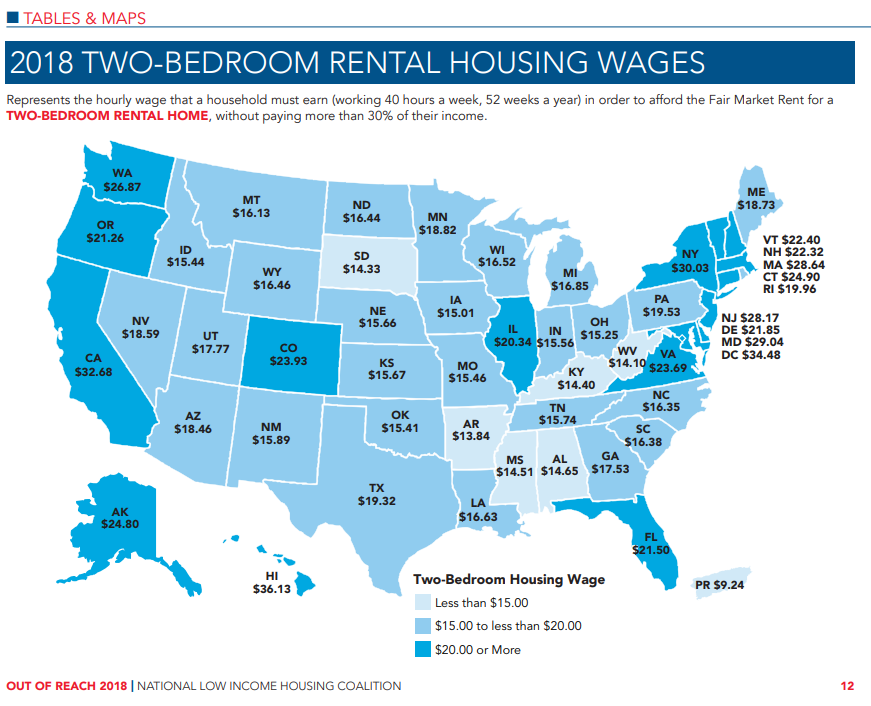Abortion rights, women of color, and LGBTQIA+ people are under attack. Pledge to join us in fighting for gender justice.
Trump’s New Overtime Proposal Will Let Employers Keep Making You Work For Free

 In a long string of anti-worker regulations, the U.S. Department of Labor has proposed a rule change to dramatically weaken the overtime rules issued by the Obama Administration in 2016, a move that will leave more than 8 million working people—disproportionately women and people of color—without any guarantee that they will get extra pay when they work extra hours.
In a long string of anti-worker regulations, the U.S. Department of Labor has proposed a rule change to dramatically weaken the overtime rules issued by the Obama Administration in 2016, a move that will leave more than 8 million working people—disproportionately women and people of color—without any guarantee that they will get extra pay when they work extra hours.
Millions of workers who would have guaranteed overtime protections under Obama-era rules may now be forced to work additional hours for free.
Back in 2016, new rules were supposed to go into effect that essentially said if you make less than $47,476 in a year, your employer would be required to pay you time and a half for any overtime hours worked—and that threshold would have reached about $51,000 in 2020, because the rule provided for automatic adjustments every few years to keep up with rising wages overall.
Unfortunately, just days before the rule’s effective date in 2016, a district court in Texas blocked it. That case is still pending, and while the Department of Labor should be working to defend the 2016 rule, the Trump administration—which has repeatedly attacked middle class, moderate-, and low-income people working to make ends meet—has instead determined that the threshold set in 2016 was too high.
Under the proposed changes, the threshold has been lowered to a paltry $35,308—which is only 2.3x full-time earnings at the current federal minimum wage ($7.25/hour), or $679 per week.
This means you would only be ensured overtime pay if you make less than about $35k a year.
More than half of the workers who would have gained new or strengthened overtime protections from the 2016 rules will be left behind.
The new proposed threshold is insulting to the millions of workers are still struggling to get by. It’s no news that the current minimum wage is laughable. Even those who make up to $35,000 a year are barely making a living or a housing wage, which is very dependent on where you live.
If you work 40 hours/week for 52 weeks (no vacations, no unpaid sick leave), you can only make up to $16.98 an hour before you lose guaranteed overtime protections under the proposed rules. In only half of the states in the country does that meet the minimum threshold for a housing wage. For working people in states such as Arizona, Florida, Colorado, Alaska, or Georgia, making the minimum housing wage means you may be forced to work extra hours for free.
While working at the National Women’s Law Center, I got paid overtime. Under the new rules, I could have been left behind.
People rely on overtime for myriad reasons. For me, overtime was a necessary and critical aspect of my first job at NWLC. As a program assistant, my hours varied week to week, and often at short notice. Whether I was finalizing an urgent factsheet on how low-wage jobs are primarily held by women or working to organize briefings and Hill visits for survivors of sexual assault, my work often required I put in time in the evenings or on weekends—but I was always compensated for my additional labor. I relied on overtime to fill gaps in my finances, as my rent and transportation took up more than half of my income. Those extra hours of pay were crucial for me to make rent payments on time, which meant no late fees, a better credit score, and the ability to rent in other areas if I decide to move.
I got paid overtime even though I made more than $23,660 a year (the overtime salary threshold that has continued to be in effect since the Obama-era increase was blocked)—because I work at a progressive organization dedicated to fighting for gender, racial, and economic justice, which is also full of lawyers who understand and respect how the overtime rules are supposed to work.
There’s actually a two-part test to determine if an employee qualifies for overtime:
- You are guaranteed overtime if you make below the salary threshold.
- If you make above the threshold, you could still qualify if you meet the “duties test”—meaning if your work responsibilities are not “executive, administrative, or professional,” you should still get overtime pay for any hours over 40 that you work in a week.
The purpose behind this test is to make clear that, under a certain salary threshold, there’s no way an employee’s duties are of the high-level executive variety, with the flexibility and bargaining power that goes along with that status—and she therefore should be entitled to overtime pay for overtime hours. But when that threshold is too low, employers can (and do) abuse the system by paying people salaries just above the threshold and claiming they have the kind of duties that make them overtime-exempt—then requiring them to work long hours for no extra pay.
Under the Trump proposal, for example, a promotion to “shift supervisor” for a $35,400 salary could still cost a woman her overtime pay, even if she is required to work 60 hours a week and performs many of the same tasks as the people she supervises. Under the Obama-era rule, the same employee would need to make at least $51,000 before her employer could argue that she is overtime-exempt. And she would have to keep getting raises to stay overtime-exempt under the Obama-era threshold, because the threshold would have risen automatically every few years; the Trump proposal doesn’t provide for the threshold to ever go above $35,308.
That’s why the Economic Policy Institute estimates that the number of workers left behind by the Trump rule grows from 8.2 million in 2020 to an estimated 11.5 million by 2029—and the wage gains workers will lose each year will grow from $1.2 billion in 2020 to $1.6 billion a decade later.
The Trump administration is signaling to millions of people that their labor isn’t worth being paid for.
By dismissing the real need for a living wage and for overtime protections, the Trump administration is once again showing it values massive profits for businesses over the real labor — and time! — of working people.
If it bothers you that a billionaire who inherited massive familial wealth thinks millions of people should just work for free, submit a comment to the Department of Labor telling them not to implement this rule. Working people are already being squeezed in an economy that is leaving us behind — we shouldn’t have to work so hard only to receive a depleted paycheck.
Tell the Department of Labor to reject Trump’s overtime proposal.



